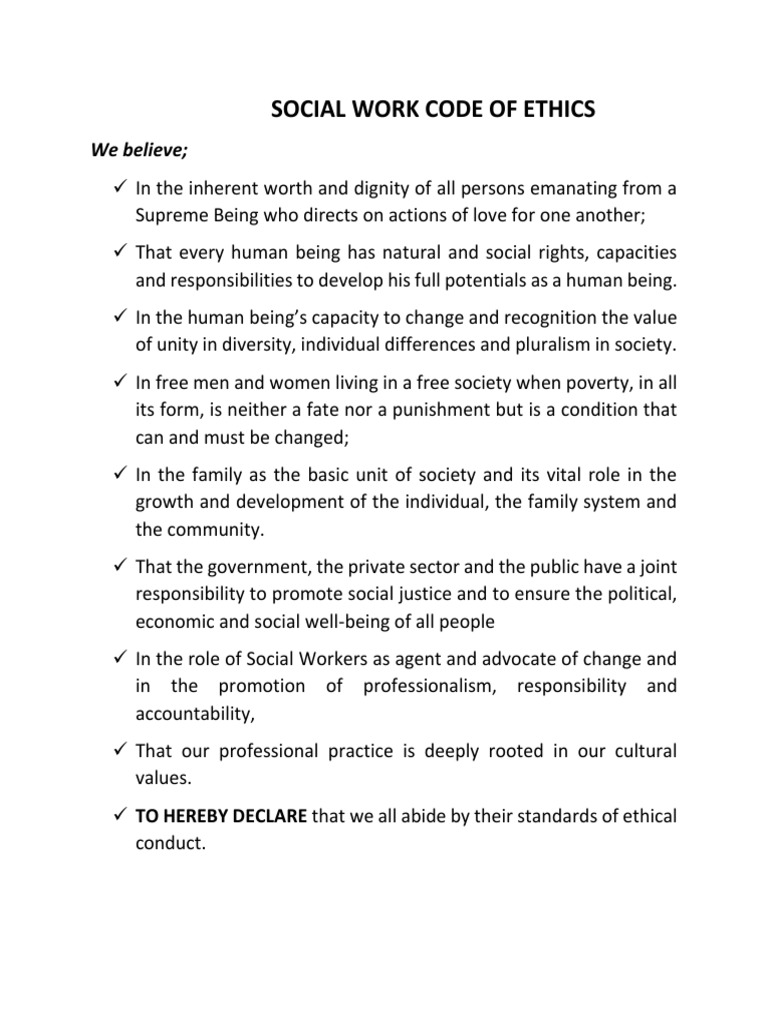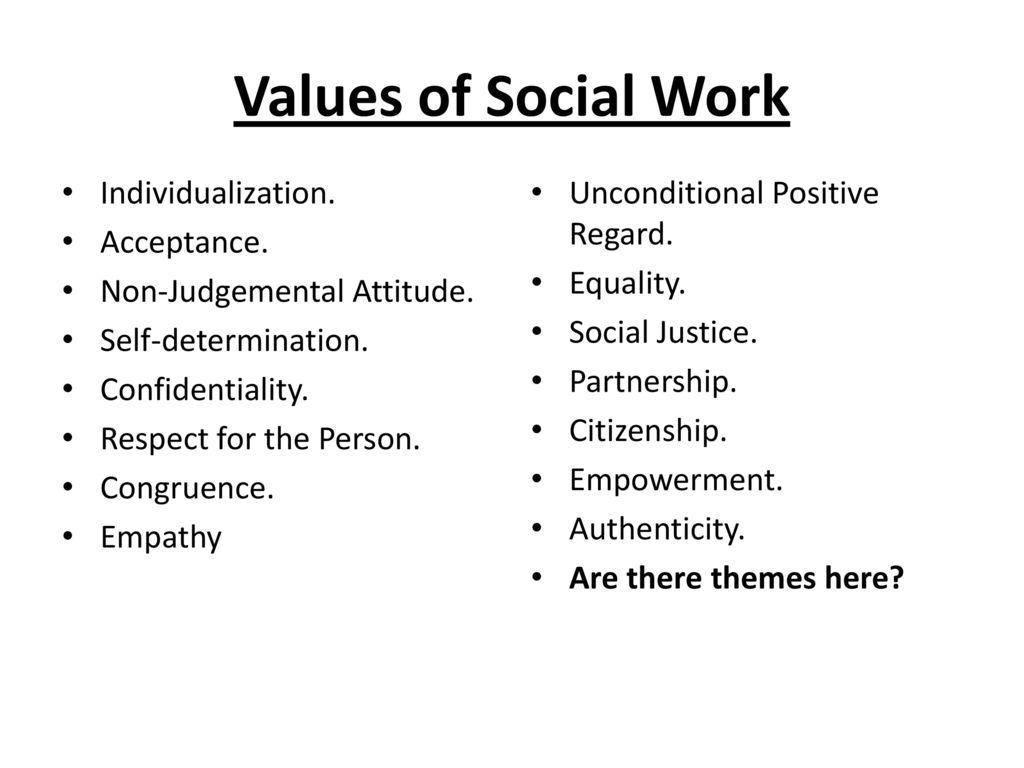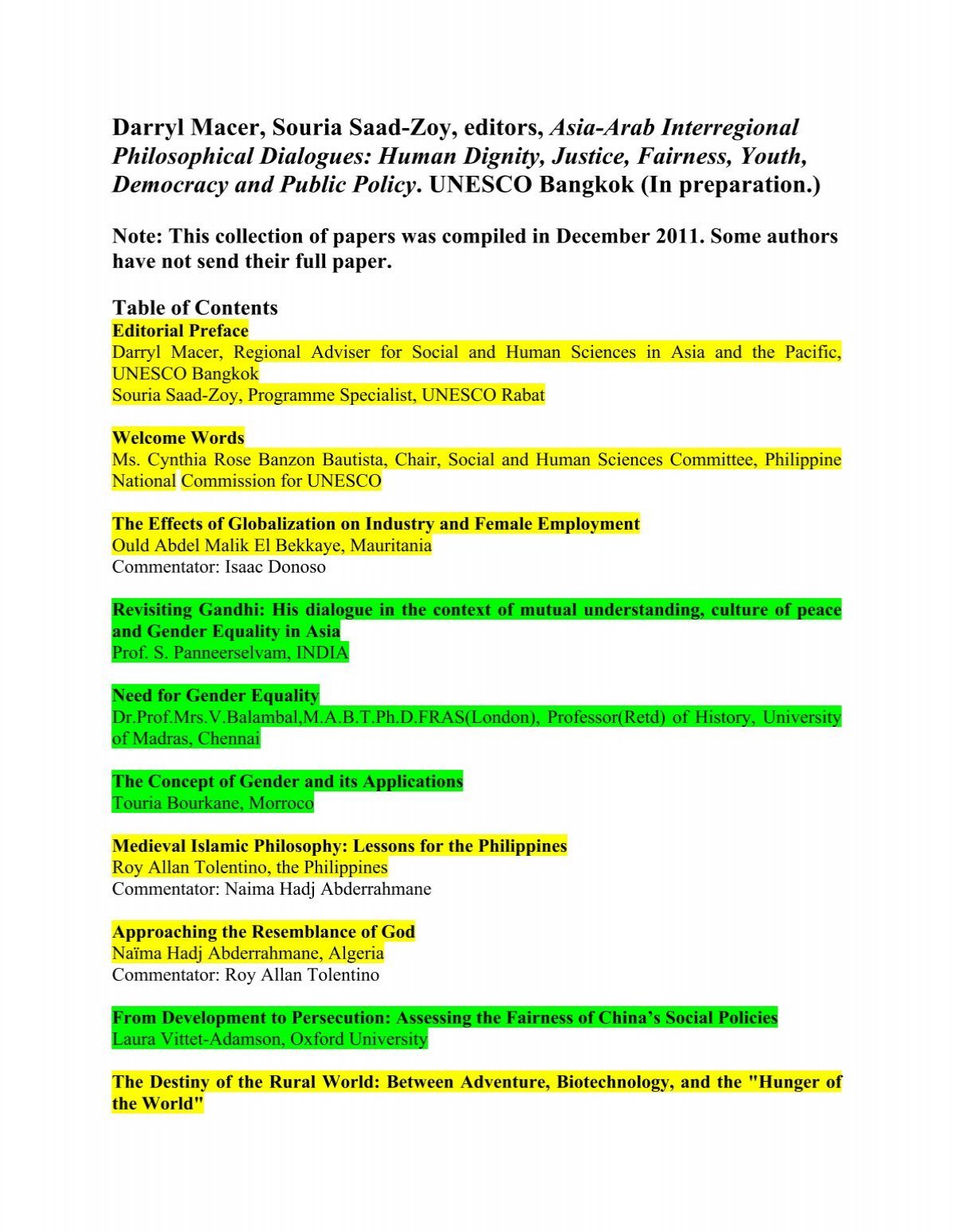The Ultimate Guide To Social Work Ethics: 20+ Reallife Examples

Navigating the Ethical Landscape in Social Work

Social work is a noble profession, dedicated to improving the well-being and quality of life for individuals, families, and communities. At the heart of this profession lies a strong commitment to ethics, ensuring that practitioners uphold the highest standards of integrity and respect for their clients. In this comprehensive guide, we will delve into the intricate world of social work ethics, exploring real-life examples that highlight the importance of ethical decision-making. By examining these scenarios, we aim to provide a deeper understanding of the ethical dilemmas faced by social workers and offer practical insights for navigating them.
Understanding the Code of Ethics

The foundation of ethical practice in social work is built upon a set of guiding principles outlined in the National Association of Social Workers (NASW) Code of Ethics. This code serves as a roadmap, offering social workers a framework to navigate complex situations and make informed decisions. The code encompasses six core values:
- Service: Social workers strive to enhance the well-being of individuals and communities, promoting social justice and equality.
- Social Justice: They advocate for the rights of marginalized groups, challenging discrimination and promoting fairness.
- Integrity: Upholding honesty and integrity, social workers maintain trust and confidentiality with their clients.
- Competence: Committed to continuous professional development, they strive to provide the best possible services.
- Human Dignity and Worth: Respecting the inherent value of every individual, social workers promote self-determination and empowerment.
- Importance of Human Relationships: Recognizing the power of human connections, they foster supportive relationships with clients.
Ethical Dilemmas in Practice

Confidentiality and Disclosure

One of the most common ethical dilemmas faced by social workers revolves around confidentiality and the decision to disclose sensitive information. Let’s explore a scenario:
Scenario: Sarah, a social worker, is working with a teenage client, Emma, who confides that she is being physically abused by her stepfather. Emma expresses her fear of reporting the abuse, as she believes her mother will not believe her and may side with her partner. Sarah is torn between her duty to protect Emma and her obligation to maintain confidentiality.
Ethical Considerations:
- Client Autonomy: Emma’s right to self-determination must be respected, and her wishes should be taken into account.
- Potential Harm: The potential for harm to Emma if the abuse continues is a significant concern.
- Reporting Obligations: Social workers have a legal and ethical duty to report suspected child abuse.
Decision and Action:
- Sarah should engage in a sensitive discussion with Emma, explaining the importance of reporting the abuse while respecting her autonomy.
- If Emma remains reluctant, Sarah can explore alternative reporting methods, such as anonymous reporting or seeking legal advice.
- Throughout the process, Sarah must maintain confidentiality and ensure Emma’s trust is not breached.
Dual Relationships and Boundaries

Social workers often find themselves in situations where they must navigate the delicate balance between professional relationships and personal connections. Here’s an example:
Scenario: John, a social worker, has been working with a client, David, for several months. During a routine check-in, John discovers that David is a close friend of his cousin. John is now faced with the challenge of maintaining professional boundaries while also considering the potential impact on his personal relationship.
Ethical Considerations:
- Boundaries: Social workers must establish and maintain clear boundaries to prevent blurring of roles and potential exploitation.
- Conflict of Interest: The personal connection may create a conflict of interest, affecting John’s ability to remain impartial.
- Client Trust: David’s trust in John as a professional may be compromised if the relationship is not handled appropriately.
Decision and Action:
- John should immediately disclose the connection to David, explaining the potential impact on their therapeutic relationship.
- Together, they can explore options, such as transferring David’s case to another social worker or seeking supervision to ensure professional boundaries are maintained.
- John must prioritize David’s well-being and ensure his therapeutic needs are met without compromising the integrity of the relationship.
Cultural Competence and Sensitivity

Social workers often work with diverse populations, requiring a deep understanding of cultural differences and sensitivities. Let’s consider a case study:
Scenario: Maria, a social worker, is assigned to a case involving a family from a culturally and linguistically diverse background. The family expresses strong beliefs and practices that may be at odds with mainstream social work interventions. Maria must navigate this situation while ensuring effective support.
Ethical Considerations:
- Cultural Competence: Maria must demonstrate cultural competence, respecting and valuing the family’s beliefs and practices.
- Effective Communication: Clear and respectful communication is essential to build trust and understanding.
- Potential Bias: Maria should be aware of her own biases and ensure they do not influence her decision-making.
Decision and Action:
- Maria should engage in cultural humility, actively seeking to understand the family’s perspective and incorporating their beliefs into the intervention plan.
- She can collaborate with cultural consultants or interpreters to ensure effective communication and cultural sensitivity.
- By demonstrating respect and adaptability, Maria can build a strong therapeutic alliance and provide culturally appropriate support.
Real-Life Examples and Case Studies

Case Study 1: Ethical Decision-Making in Child Protection

In a child protection case, a social worker is faced with a difficult decision. A mother, struggling with addiction, has repeatedly failed to attend drug treatment sessions, putting her children at risk. The social worker must decide whether to pursue legal action and potentially remove the children from their mother’s care.
Key Ethical Considerations:
- Best Interests of the Child: The social worker must prioritize the well-being and safety of the children.
- Family Preservation: Removing children from their family should be a last resort, and efforts should be made to support the mother’s recovery.
- Legal Obligations: The social worker must adhere to legal requirements and guidelines for child protection.
Decision and Action:
- The social worker should engage in a comprehensive assessment, considering the mother’s progress, support systems, and the children’s well-being.
- If removal is necessary, the social worker should ensure a well-planned and supportive transition, minimizing trauma for the children.
- Throughout the process, the social worker must maintain a balanced approach, respecting the family’s rights while prioritizing child safety.
Case Study 2: Navigating Ethical Dilemmas in Mental Health

A social worker, specializing in mental health, is working with a client who has expressed suicidal ideation. The client has a history of self-harm and has recently stopped attending therapy sessions. The social worker is now faced with the challenge of balancing confidentiality and the duty to protect.
Ethical Considerations:
- Duty to Protect: The social worker has a responsibility to ensure the client’s safety and prevent harm.
- Client Autonomy: Respecting the client’s right to self-determination is crucial, but this must be balanced with the potential risk of harm.
- Confidentiality: The social worker must maintain confidentiality, but in certain situations, disclosure may be necessary to protect the client.
Decision and Action:
- The social worker should initiate a dialogue with the client, expressing concern and exploring the reasons for discontinuing therapy.
- If the client remains unwilling to engage, the social worker may need to involve other professionals, such as a crisis team or emergency services, to ensure the client’s safety.
- Throughout the process, the social worker must maintain a supportive and non-judgmental approach, respecting the client’s autonomy while prioritizing their well-being.
Case Study 3: Ethical Challenges in Substance Abuse Treatment

A social worker is working with a client who has a long history of substance abuse and has recently relapsed. The client has been attending group therapy sessions but is resistant to individual counseling. The social worker must navigate the delicate balance between client autonomy and the need for comprehensive treatment.
Ethical Considerations:
- Client Autonomy: The client’s right to make decisions about their treatment must be respected.
- Effective Treatment: Social workers have a responsibility to promote evidence-based practices and comprehensive treatment plans.
- Collaboration: Engaging in collaborative decision-making with the client can enhance their motivation and commitment to recovery.
Decision and Action:
- The social worker should engage in a collaborative discussion with the client, exploring the benefits of individual counseling and involving the client in treatment planning.
- If the client remains resistant, the social worker can offer alternative options, such as family therapy or peer support groups, to enhance engagement.
- Throughout the process, the social worker must maintain a supportive and non-coercive approach, ensuring the client’s autonomy while promoting their long-term recovery.
Ethical Decision-Making Framework

To navigate complex ethical dilemmas, social workers can utilize a structured framework to guide their decision-making process. Here’s a simplified version of the ethical decision-making framework:
- Identify the Ethical Issue: Clearly define the ethical dilemma and its underlying values and principles.
- Gather Information: Collect relevant facts, perspectives, and potential consequences.
- Explore Ethical Principles: Consider the core values of social work ethics and how they apply to the situation.
- Evaluate Options: Weigh the potential outcomes and consider the impact on all stakeholders.
- Make a Decision: Choose the course of action that aligns with ethical principles and promotes the best outcome.
- Implement and Monitor: Carry out the decision and regularly evaluate its impact and effectiveness.
- Reflect and Learn: Engage in ongoing reflection and professional development to enhance ethical decision-making skills.
Notes

- Remember, ethical decision-making is an ongoing process, and social workers should seek supervision and support when faced with complex situations.
- The NASW Code of Ethics provides a comprehensive guide, but social workers must also consider legal requirements and cultural contexts.
- In cases of uncertainty, seeking guidance from experienced colleagues or ethical committees can be beneficial.
Conclusion

In the field of social work, ethical practice is not just a set of rules but a commitment to upholding the values of service, integrity, and respect for human dignity. By exploring real-life examples and understanding the complexities of ethical decision-making, social workers can navigate these dilemmas with confidence and compassion. This guide aims to provide a foundation for ethical practice, empowering social workers to make informed choices that promote the well-being of their clients and communities.
FAQ

What is the primary role of social workers in ethical practice?

+
Social workers play a vital role in promoting the well-being and rights of individuals and communities. They strive to uphold ethical principles, maintain confidentiality, and make decisions that prioritize the best interests of their clients.
How can social workers maintain cultural competence in their practice?

+
Cultural competence involves understanding and respecting diverse cultural beliefs and practices. Social workers can achieve this by engaging in cultural humility, seeking cultural consultants, and incorporating cultural sensitivity into their interventions.
What are some common ethical dilemmas faced by social workers in child protection cases?

+
Social workers in child protection often face dilemmas such as balancing family preservation with child safety, making decisions about removal, and navigating the delicate balance between confidentiality and the duty to protect.
How can social workers support clients with mental health challenges while respecting their autonomy?

+
Social workers can support clients with mental health issues by engaging in collaborative decision-making, offering a range of treatment options, and ensuring that the client’s autonomy and right to self-determination are respected.
What resources are available to social workers for ethical guidance and support?
+
Social workers can access resources such as the NASW Code of Ethics, ethical committees, supervision, and professional development opportunities to enhance their ethical decision-making skills and seek guidance when needed.


